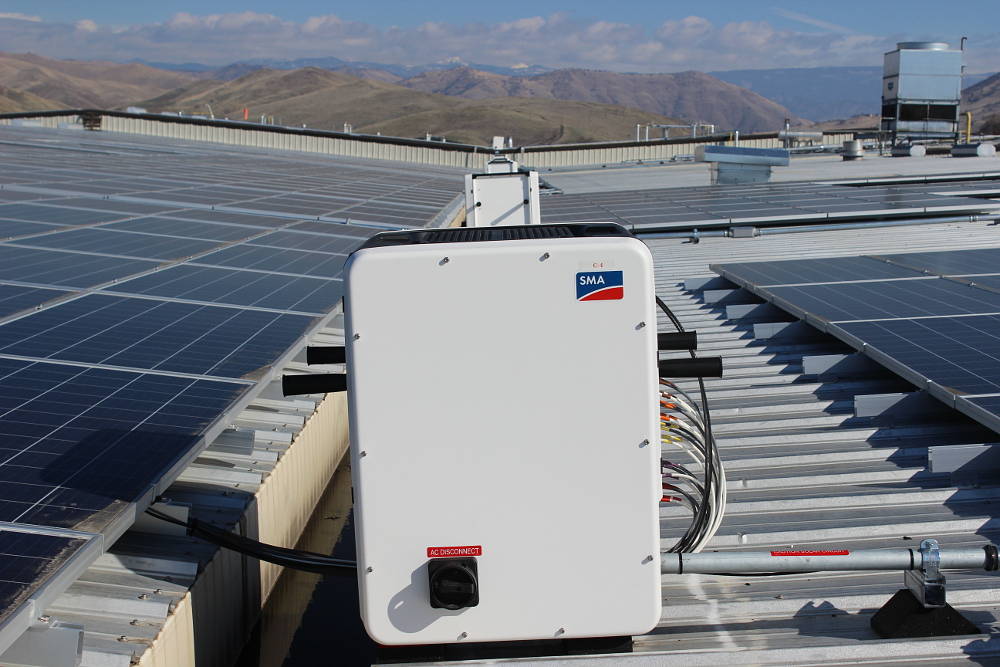
A coalition of School Board representatives, healthcare advocates and “climate leaders” in the North Bay area of California has spoken out against the California Public Utilities Commission’s (CPUC) proposal to alter the virtual net energy metering scheme (VNEM) in the state.
Ahead of the CPUC vote on the VNEM proposal, due to take place later today (2nd November), healthcare and education representatives alongside state assembly representatives have said that the proposed changes would “make it unaffordable for North Bay non-profit community health centers, schools, apartments, farms and businesses to go solar.”
Try Premium for just $1
- Full premium access for the first month at only $1
- Converts to an annual rate after 30 days unless cancelled
- Cancel anytime during the trial period
Premium Benefits
- Expert industry analysis and interviews
- Digital access to PV Tech Power journal
- Exclusive event discounts
Or get the full Premium subscription right away
Or continue reading this article for free
Assemblymember Damon Connolly said: “Preserving a robust net energy metering tariff is essential to the ability of health centers, schools, farms, and multifamily properties to reduce their utility burden through rooftop solar and help meet our state’s climate action and resiliency goals. “I join our health centers in calling on the California Public Utility Commission to amend its proposal to include on-site netting to allow these facilities access to solar-generated power while continuing to support disproportionately underserved communities.”
According to the signatories, changes would remove the ability for properties with multiple electricity meters – like rental apartment blocks, schools, health centres and small businesses – to consume the energy that they produce on-site without selling it all to the utility and buying it back at higher rates.
Under current legislation, a multi-meter property can install a solar PV system with the credits for the energy produced to be shared between the different meters in the form of bill reductions.
“Petaluma Health Center is committed to reducing our carbon footprint by investing in solar systems and battery storage, however, when we are forced to buy back the energy we create from the utilities at an inflated amount, we all lose, especially the historically underserved communities we serve,” said Pedro Toledo, CEO of the Petaluma Health Center, a multi-meter property with solar that will be adversely impacted by the CPUC decision if approved without on-site netting.
“This change would mean we would have to pay hundreds of thousands to PG&E to buy back the solar power we create, instead of investing those dollars in developing and implementing climate resiliency programs for the people we serve.”
The last time around
In December, the CPUC voted on a controversial change to the regular net energy metering (NEM) legislation which affects single-meter properties. The change from NEM 2.0 to NEM 3.0 drastically reduced the compensation afforded to homeowners for excess power produced on their solar system and exported back to the grid.
Ahead of that vote in December, many figures in the solar industry vehemently opposed the proposal and foresaw that it would “cut solar off at the knees”. The CPUC said that the change is intended to incentivise battery storage systems to increase grid resilience and reward consumers for using stored energy at peak times.
As the 5th largest economy in the world, with a long-running history of promoting solar power, California has been seen as a bellwether for the global market, particularly where rooftop and residential solar is concerned. Between December 2022 and April 2023, between the vote and the passage of NEM 3.0, the Californian market reported a spike in solar installations as consumers looked to capitalise on NEM 2.0 before it ended.
More on this story to follow…






